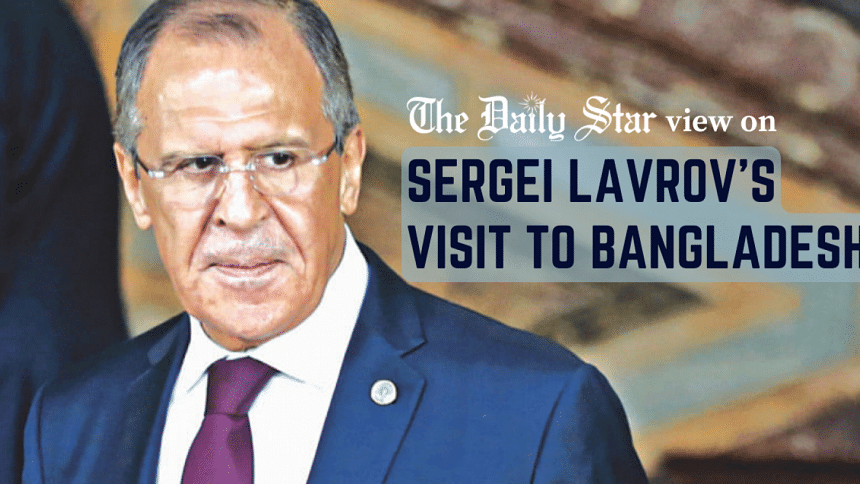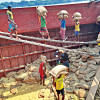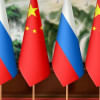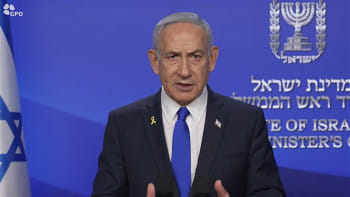Lavrov’s visit consolidates Bangladesh-Russia relations

Russian Foreign Minister Sergey Lavrov's trip to Bangladesh, the first ever visit of its kind from a Russian foreign minister, is an important milestone in continuing diplomatic relations between our two countries. The seeds of this relationship were sowed in 1971, when the Soviet Union extended its support to Bangladesh during the Liberation War, and as such we welcome his presence and his talks with Prime Minister Sheikh Hasina and Foreign Minister AK Abdul Momen.
However, it is important to note that this trip comes at a time when the major nations are deadlocked in a power struggle, and increasingly turning towards the Indo-Pacific region as a battleground for their hostile relations. Coupled with the disruption of global supply chains and subsequent price hikes as a direct result of the Russia-Ukraine war and sanctions against Russia, countries like Bangladesh are finding themselves caught in the crossfire and having to maintain a delicate balancing act to navigate these challenging diplomatic situations.
Lavrov made strong statements on US interference and Russia's commitment to working with its partners to prevent any outside "dictates." In this regard, we defend our right to formulate our own national policies without facing external pressure from any nation. At such a time, it is even more imperative for Bangladesh to maintain its foreign policy position of friendship to all, malice to none.
We hope that part of this policy of maintaining friendly, mutually beneficial relations will lead to creating conditions that allow Bangladesh to deal with and recover from the negative impacts of the past year's global events. A possible supply of LNG, wheat and fertilisers to provide urgent relief from high inflationary pressures is the need of the hour, as well as repayment of loans from Russia in a currency that will suit Bangladesh. At the same time, we hope Russia will exert its influence with its allies in the region to hold Myanmar accountable for the violence against the Rohingya, and ensure safe, voluntary and durable repatriation of Rohingya refugees.
So far, Bangladesh has taken a balanced position in the UN regarding the Russia-Ukraine war. We support the prime minister's call for all parties to arrive at a peaceful settlement through negotiations, and hope that in the ongoing G20 summit, major powers will listen to the voice of reason that countries like Bangladesh are providing, and choose cooperation instead of militarisation.
Follow The Daily Star Opinion on Facebook for the latest opinions, commentaries and analyses by experts and professionals. To contribute your article or letter to The Daily Star Opinion, see our guidelines for submission.

 For all latest news, follow The Daily Star's Google News channel.
For all latest news, follow The Daily Star's Google News channel. 








Comments